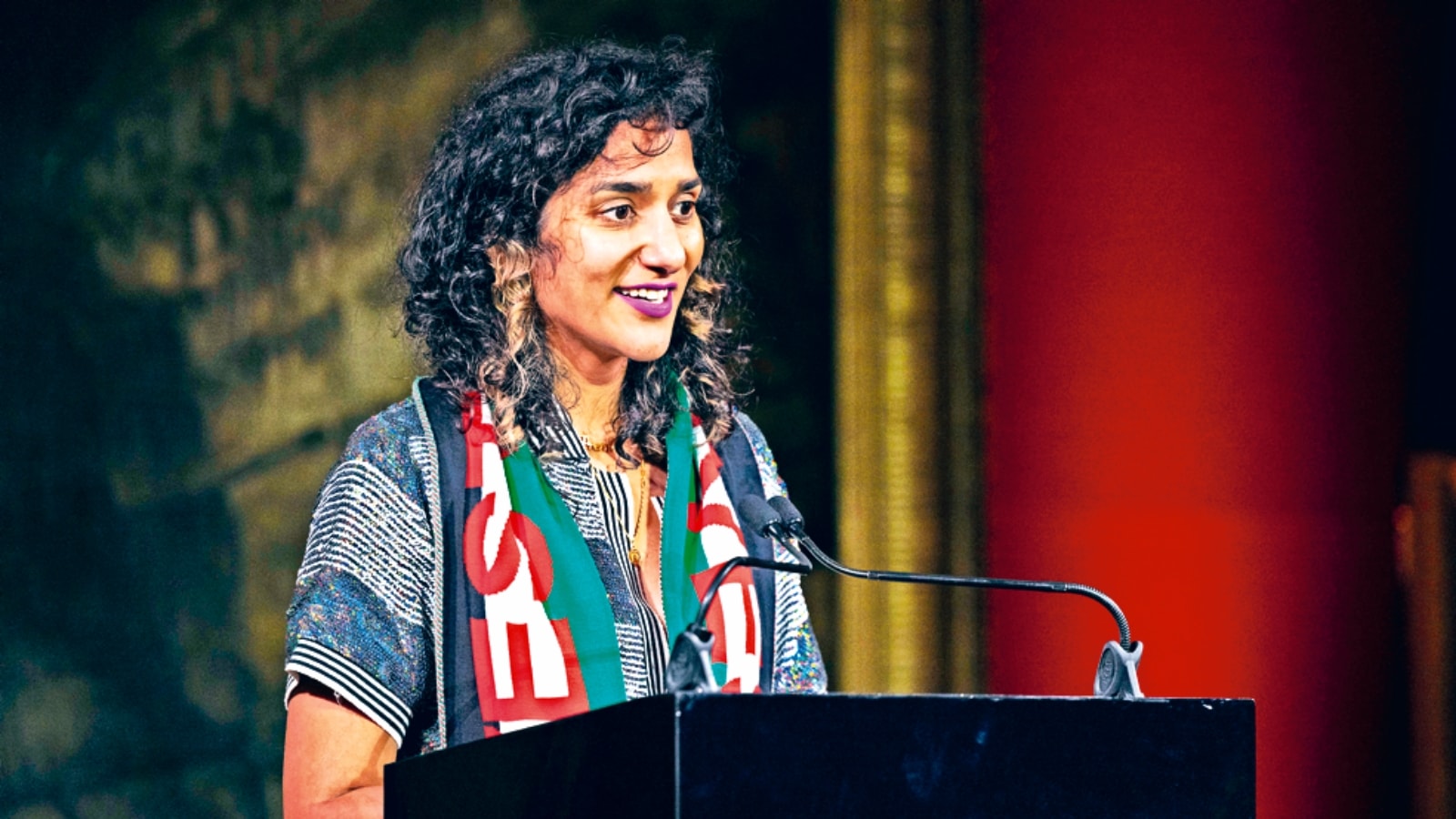Indian-origin artist wins Turner Prize: ‘Weaves personal, political, spiritual’
5/12/2024 - Updated 1:04:17 pm
Courtesy: The Indian Express
At 38, Kaur was the youngest nominee for this year’s award that includes a cash prize of £25,000. This year marks the 40th anniversary of the prize. The other shortlisted artists included Pio Abad, Claudette Johnson and Delaine Le Bas.

Indian-origin Scottish artist Jasleen Kaur has won the prestigious Turner Prize 2024 for her exhibition, “Alter Altar”, that reflects on plurality, personal and political themes. The jury — chaired by Alex Farquharson, Director, Tate Britain — praised “the considered way in which Kaur weaves together the personal, political and spiritual… choreographing a visual and aural experience that suggests both solidarity and joy”. It also highlighted Kaur’s “ability to gather different voices through unexpected and playful combinations of material”. At 38, Kaur was the youngest nominee for this year’s award that includes a cash prize of £25,000. This year marks the 40th anniversary of the prize. The other shortlisted artists included Pio Abad, Claudette Johnson and Delaine Le Bas. Born in Glasgow, Kaur’s great-grandfather reportedly moved from Punjab in 1950, three years after Partition; her father owns a hardware store in Scotland. Her prize-winning exhibition “Alter Altar”, first shown in Glasgow last year, also reflects on her own family history as migrants to Scotland and her upbringing. It featured, among others, a vintage red Ford Escort covered with a huge crocheted doily, a reference to her father’s migrant aspirations, worship bells, Irn-Bru orange resin, an Axminster carpet, and family photographs. Also playing were soundtracks that were part of Kaur’s growing up years, from Nusrat Fateh Ali Khan to Bob Marley. In several interviews, Kaur has often discussed her multicultural upbringing and influences. If her 2021 series, “Gut Feelings Meri Jaan”, explored ideas around inheritance and belonging, history and archive, in the 2018 “I Keep Telling Them These Stories”, she used archival foota
ge and recordings gathered from India and Scotland to explore culture as praxis, family, identity and origins. Her 2019 publication, “Be Like Teflon”, commissioned by Panel for Glasgow Women's Library, comprises conversations between Kaur and women of Indian heritage living in the UK. Her website describes her as: “An artist making with the slurry of life. Raised amidst betrayal, secrecy and banished outsiders, her work is to make sense of what is out of view or withheld. She is called towards plurality, declassifications, polyphony, the blur. She is practising singing in the sediment till she is intoxicated.” In an interview on the Tate website, Kaur states: “There’s this particular theory that I grew up with from the Sikh tradition which talks about Miri Piri, which is this balance of the political and the spiritual. I’m really interested in that duality and I’ve become quite obsessed with this particular point in my lineage where devotional practices were done across religious lines. That was happening for hundreds of years. But through the violence of borders, the violence of colonialism, the violence of empire, so much of this stuff, it has been impacted. And I'm obsessed with it because it tells me that there's a different way to live together.” In her acceptance speech for the award on Tuesday, the Royal College of Art alumnus called for a ceasefire in Gaza, an end to institutional complicity in Israel’s genocide, and an arms embargo. She is also one of the signatories to a letter demanding that Tate sever ties with organisations that are deeply complicit with the Israeli regime. “It's not a radical demand. This should not risk an artist's career or safety,” she said in her speech.